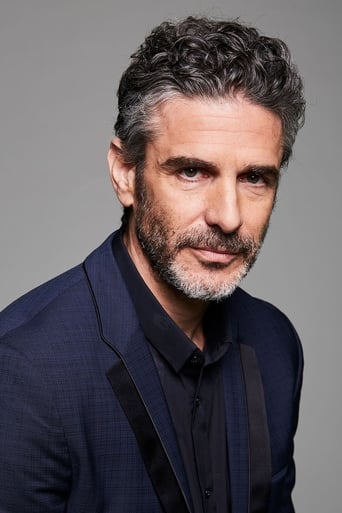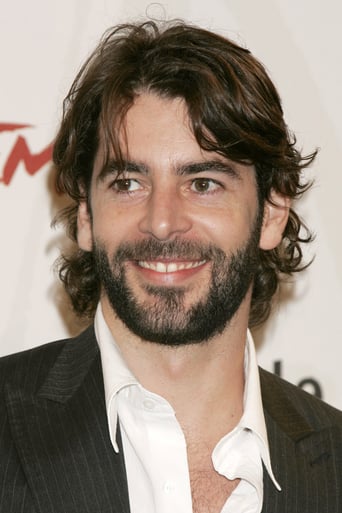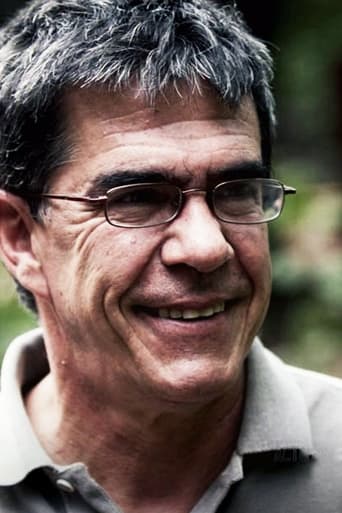Gutsycurene
Fanciful, disturbing, and wildly original, it announces the arrival of a fresh, bold voice in American cinema.
Siflutter
It's easily one of the freshest, sharpest and most enjoyable films of this year.
Matylda Swan
It is a whirlwind of delight --- attractive actors, stunning couture, spectacular sets and outrageous parties.
SnakesOnAnAfricanPlain
A movie about waiting. Doesn't sound too interesting, but when you have well written characters, their interactions become action. This is the story of a heist that goes a little awry. The gang must then hideout. This sounds easier than it is, as fingers begin to point at a setup, and a couple begin to drift apart. This whole time waiting becomes a time for the two protagonists to explore and experiment. It soon becomes obvious that money isn't the only thing at stake, but also pride and freedom, and not just the kind of freedom that involves keeping out of jail. The film, like the best crime thrillers, explodes into violence at a shocking speed. It emphasizes the realistic tone. I loved the 60's setting, and the music really captured the period. At times both frustrating and sad, it shows how humans will let their hearts take over, even if that means getting everyone killed/imprisoned and losing a lot of money in the process.
Dante Burge
Burnt Money is an exceptional film in the crime drama genre and stands quite well as director Marcelo Pineyero provides Hollywood with an example of what subtlety can bring to cinema. This film also does its best as a commentary of the internal division between the people and the corrupt government in Argentina, as showcased by the character Nando, played by Carlos Roffe. A few scenes strike out at me for recounting the director's work and it also must be said that the work of the actors that portrayed Nene, Angel and Cuervo was thoughtful and delivered with subtlety to match that of the director's nuanced vision of the world that the trio inhabits.Two scenes that immediately jump to mind are those that weave both dramatic long takes with clever use of diagetic sound to create a suspenseful dramatic scene. The two scenes are of the moment that Vivi is captured by the police and the 'relaxing' scene at the beach party with the trio. I enjoyed both of these scenes very much due to the director's courage to use a long take to add suspense. The suspense in these scenes however is not the same as the violent and gore soaked films we call 'suspense', but a more chilling and ominous sense of dread is evoked with the stillness of each scene. There is a moment that both scenes erupt with action, and the music within each scene accentuates the moment that the juxtaposition of mood occurs. Basically the manipulation of music within the scene such as the record being torn off the player just as the party erupts show that the director made disciplined use of all the tools in his arsenal to create a fully imagined atmosphere and mood.
Michelle Bartle
Burnt Money is a love story, alone in its conquest for equality in the Latin American setting of 1965. At the center are two men, Angel and Nene, characters sharing an extraordinary bond of love, implicit in two ways: one, in that their sexual identity is repressed, and two, that the viewer never witnesses sex in its explicit form between the two. The two struggle to understand just where they fit: Nene, taking in his sexual company a lonely prostitute, and Angel, grappling with Nene's apparent refusal of him by shooting up heroin, nearly dying as a result of his amorous devotion. In a nod to Hollywood cinema, Marcelo Piñeyro focuses on the action just as much as he focuses on the relationship of two men, who call themselves Los Mellizos, or the twins. Like its name implies, Burnt Money appears to signify loss, or losing the value of something or someone. Marcelo Piñeyro suppresses the explicit relationship and the erotic routine from the viewer's eyes. It's almost as if he himself wants to break away from the tradition of thinking that gay love is always overtly evident. Scene after scene, the incredible excruciation of being in love is honorably, even horrifically evident, such as in the scene where Nene tenderly takes to the bullet in his lover, Angel's side; whose agonized screams are shrill as well as painful. Burnt Money is a movie that society should be interested in, because it shows how first impressions are almost always incorrect. By the end of the movie, the audience realizes for itself how living in a materialistic culture affects their understanding of the film. This movie is not for the viewer with a preconceived or pessimistic notion of homosexuality, or one who is easily turned away from overt sexuality, as it appears elsewhere in the film. It's inconceivable to think of a love surviving amidst chaos, yet explicitly evident by the film's conclusion are two characters gleefully and explicitly demonstrating their devotion; a scene where the two burn the money that they stole, and that which their pursuers are after.
moonspinner55
Well-acted, stylish Spanish crime-drama from Ricardo Piglia's book is allegedly based on factual account from 1965 involving estranged gay lovers in Argentina who re-energize their relationship with successful, brutal crime sprees (they call themselves "The Twins"); after one particular robbery ends in gunfire and dead cops, the two go into hiding along with their accomplices in Uruguay. Despite a skittering sort of continuity that keeps a breathless momentum going--at the expense of a well-wrought narrative--the film is highly adept at setting a sweaty, prickly mood. At first, the sexual clinches (which are actually non-sexual, as one partner keeps pushing the other away) are aloof and perhaps a bit self-conscious, but the actors improve along with the film; by the finale, Nene and Ángel really do seem like doomed soul mates, helplessly intertwined. Fascinating on occasion, and handsomely produced, the picture lifts bits and pieces from its American gangster counterparts ("The Godfather", "Scarface", et al.), yet it may be braver than those while digging into the characters' sordid lives. **1/2 from ****




